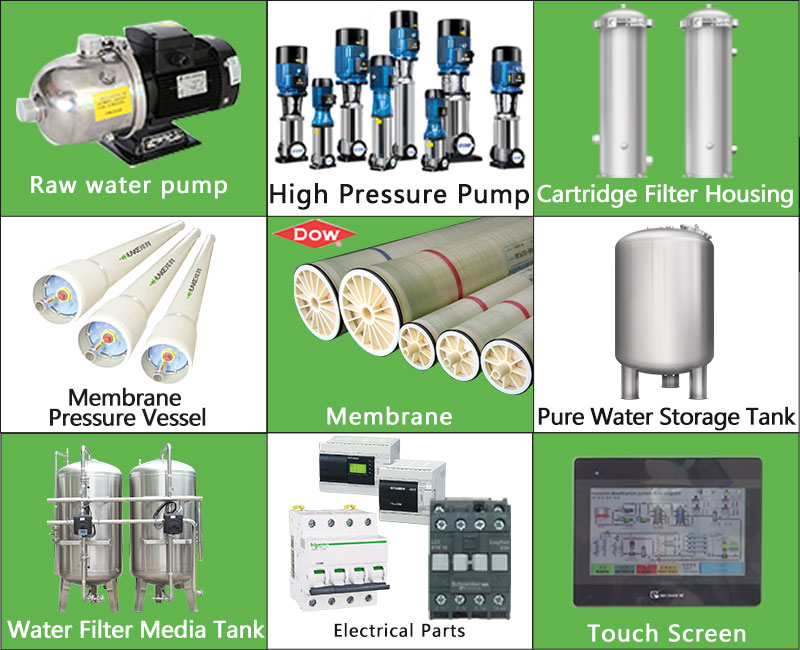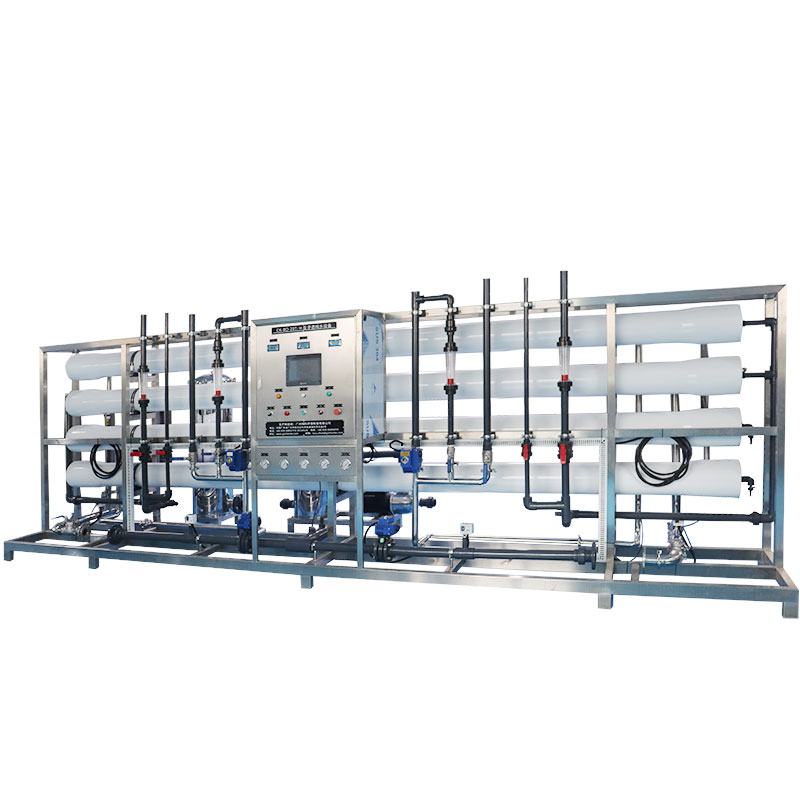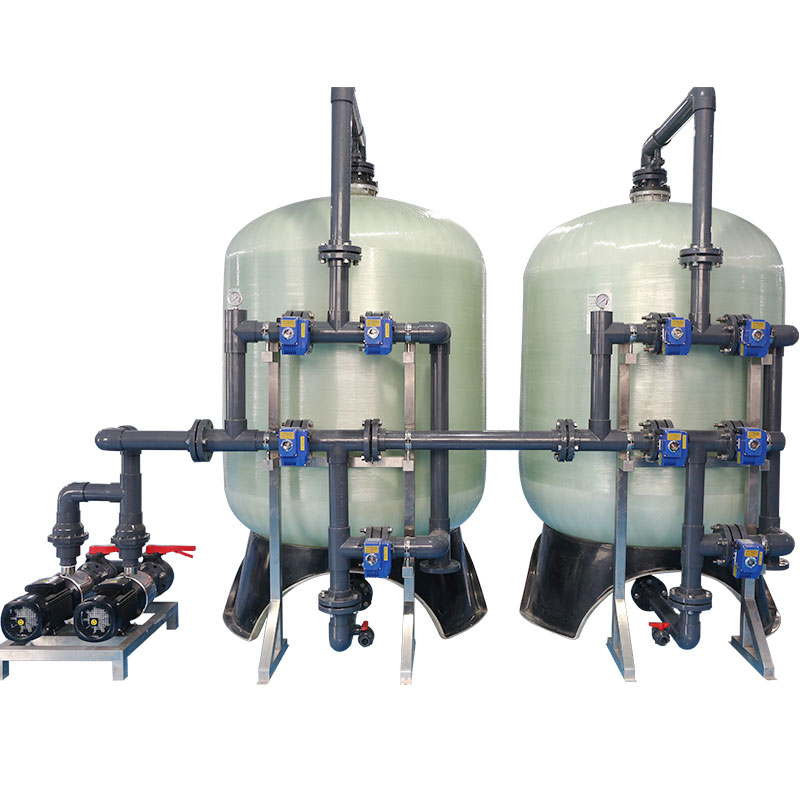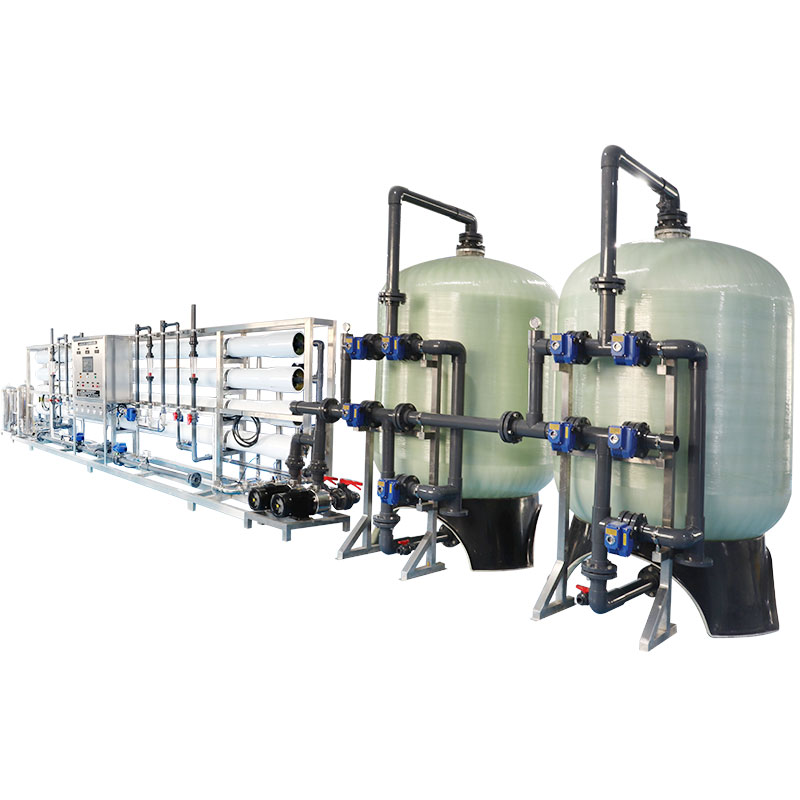What is an agricultural water softener? What is its function?
Agricultural production is an important foundation for the survival of human society, and water resources are the lifeblood of agricultural production. However, water quality problems have long plagued agricultural development, especially hard water problems, which not only affect the growth of crops, but also damage irrigation systems and agricultural equipment. In order to solve these problems, agricultural water softeners came into being.
So, what is an agricultural water softener? What is its function? This article will explore these issues in detail from multiple angles.

What is an agricultural water softener?
An agricultural water softener is a water treatment device specially used in the agricultural field, which is designed to reduce the content of calcium and magnesium ions in irrigation water sources, thereby reducing the hardness of water. Compared with household water softeners, agricultural water softeners usually have larger processing capacity and higher durability, which can meet the needs of large-scale agricultural irrigation.
The core component of agricultural water softeners is ion exchange resins, which replace calcium and magnesium ions in water with sodium or potassium ions through ion exchange reactions, thereby reducing the hardness of water. This process not only protects agricultural equipment from scale damage, but also improves soil structure and crop growth environment.
Agricultural water softeners usually consist of the following parts:
1. Resin tank: Contains ion exchange resin and is the core component for softening water quality.
2. Brine tank: Stores regeneration salt for regular regeneration of ion exchange resin.
3. Control valve: Regulates water flow direction and regeneration cycle to ensure the normal operation of the water softener.
4. Water delivery system: Delivers treated soft water to farmland or irrigation equipment.

What is the impact of hard water on agriculture?
Before discussing the role of agricultural water softeners, it is necessary to understand the impact of hard water on agricultural production. Hard water contains high concentrations of calcium and magnesium ions, which can cause the following problems:
1. Scaling of irrigation equipment: When hard water flows in irrigation equipment, calcium and magnesium ions combine with carbonate ions to form insoluble calcium carbonate and magnesium carbonate. These compounds will deposit in pipes, nozzles and filters to form scale, causing equipment blockage, reducing irrigation efficiency and increasing maintenance costs.
2. Soil compaction: Long-term use of hard water for irrigation will lead to increased calcium and magnesium ion content in the soil, which will in turn cause soil compaction problems. This kind of compacted soil has poor air permeability, and it is difficult for water and nutrients to penetrate, which affects the growth of crop roots and leads to a decrease in crop yields.
3. Crop absorption disorder: Excessive calcium and magnesium ions may interfere with the plant's absorption of other nutrients, such as iron, manganese, and zinc. These trace elements are essential for crop growth, and their deficiency will lead to poor crop growth, yellow leaves, dwarfing and other symptoms.
4. Reduced effectiveness of pesticides and fertilizers: Calcium and magnesium ions in hard water may react chemically with certain components in pesticides or fertilizers to form insoluble precipitates, thereby reducing the effectiveness of pesticides and fertilizers. This means that farmers may need to use more pesticides and fertilizers, increasing agricultural production costs.
What is the main role of agricultural water softeners?
Given the many adverse effects of hard water on agricultural production, the role of agricultural water softeners in agricultural production is particularly important. First of all, agricultural water softeners reduce the deposition of calcium and magnesium ions in irrigation equipment and prevent the formation of scale by reducing the hardness of water. This not only extends the service life of irrigation equipment, but also reduces the maintenance and cleaning frequency of equipment, thereby reducing the overall cost of agricultural production.
Secondly, the use of softened water for irrigation helps to reduce the accumulation of calcium and magnesium ions in the soil, prevent soil compaction, and maintain the looseness and air permeability of the soil. Good soil structure helps the effective penetration of water and nutrients, promotes the growth of crop roots, and thus improves crop yield and quality. Agricultural water softeners can effectively reduce the interference of hard water on crop nutrient absorption. By reducing the concentration of calcium and magnesium ions, crops can better absorb trace elements such as iron, zinc, and manganese, thereby reducing the risk of nutrient deficiency and promoting healthy growth of crops.
In addition, softened water does not react adversely with the ingredients in pesticides and fertilizers, so it can ensure the efficient use of these agricultural inputs. The use of softened water can reduce the amount of pesticides and fertilizers, thereby reducing the risk of pesticide residues and environmental pollution of fertilizers, and achieving the goal of increasing production and efficiency. Finally, the use of softened water can also help improve the efficiency of irrigation equipment and reduce water waste. Since softened water is not easy to form scale, irrigation equipment can maintain efficient operation for a long time, reducing the risk of blockage and reduced water flow, thereby achieving more efficient water-saving irrigation.

How to choose the right agricultural water softener?
Choosing the right agricultural water softener is the key to ensuring its effective function. Before purchasing a water softener, farmers should conduct detailed water quality tests on the water source to understand parameters such as water hardness, calcium and magnesium ion content, and pH value. This helps to choose the right water softener model and specifications.
Secondly, the processing capacity of the agricultural water softener should be determined according to the irrigation area and water consumption. A water softener with too small a processing capacity cannot meet the needs of large-scale agricultural irrigation, while a water softener with too large a processing capacity may cause a waste of resources. Since the agricultural environment is usually harsh, agricultural water softeners should have high durability and corrosion resistance. Choosing equipment with reliable quality and long service life can reduce the frequency of maintenance and replacement and save long-term costs.
In addition, the operation of agricultural water softeners requires regular regeneration of resin and the use of regeneration salt. Therefore, when choosing a water softener, farmers should consider the regeneration frequency of the equipment, the amount of regeneration salt used, and the maintenance cost. Choosing a water softener with low salt consumption and easy maintenance can reduce operating costs. Modern agricultural water softeners are usually equipped with an automated control system that can automatically adjust the working mode according to the actual water consumption and water quality. Equipment with a high degree of automation can reduce the need for manual operation and improve operating efficiency.
Finally, choosing a well-known brand of agricultural water softener can ensure the quality and performance of the equipment, and also enjoy more complete after-sales service, including installation guidance, regular maintenance, troubleshooting, etc.

How to use and maintain an agricultural water softener?
The effective operation of an agricultural water softener depends not only on the quality of the equipment, but also on reasonable use and maintenance. Regeneration salt is an important guarantee for the normal operation of the water softener. Farmers should regularly check the amount of salt in the brine tank and replenish it in time according to the usage to ensure that the equipment can be regenerated on time. Secondly, the resin tank is the core component of the water softener and needs to be cleaned regularly to remove accumulated impurities and sediments and maintain the activity of the ion exchange resin.
Although the water softener can effectively reduce the hardness of water, farmers still need to regularly test the irrigation water quality, especially when the water source changes or the equipment operates abnormally, and adjust the operating parameters of the water softener in time. In cold seasons, farmers should take measures to prevent the softener from freezing and damage, especially when used outdoors in cold areas.
In addition, although the resin has a long service life, its softening ability will gradually decrease after long-term use. When the softening effect is found to be significantly weakened, farmers should replace the resin in time to ensure the continued effective operation of the equipment.






